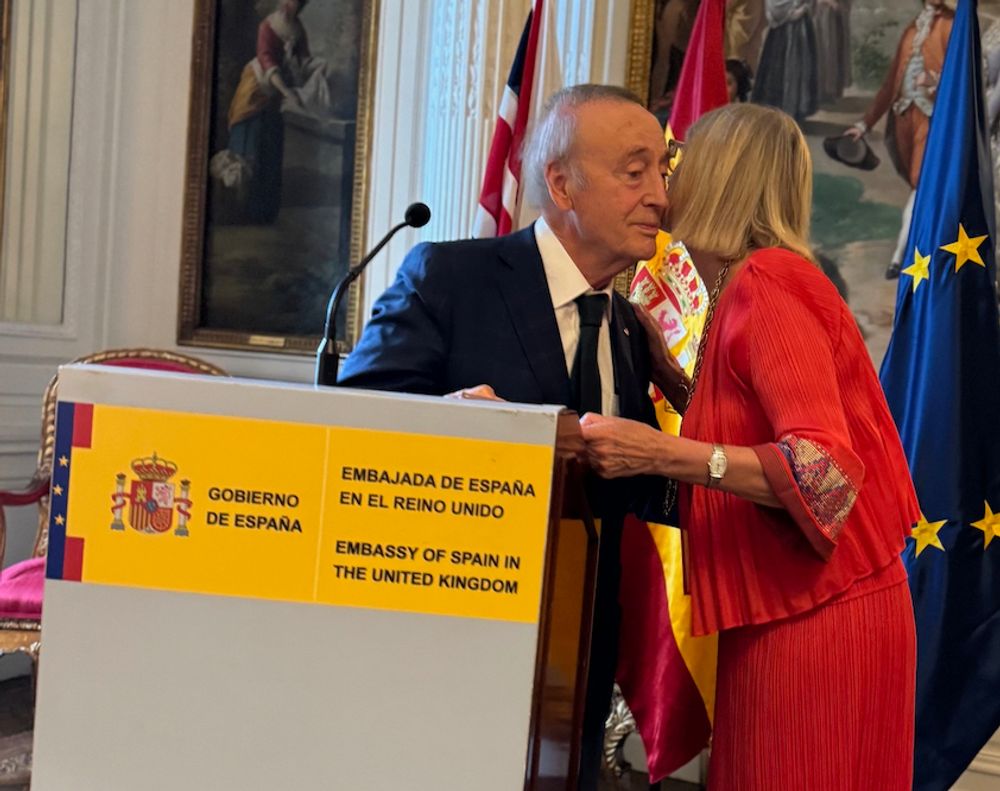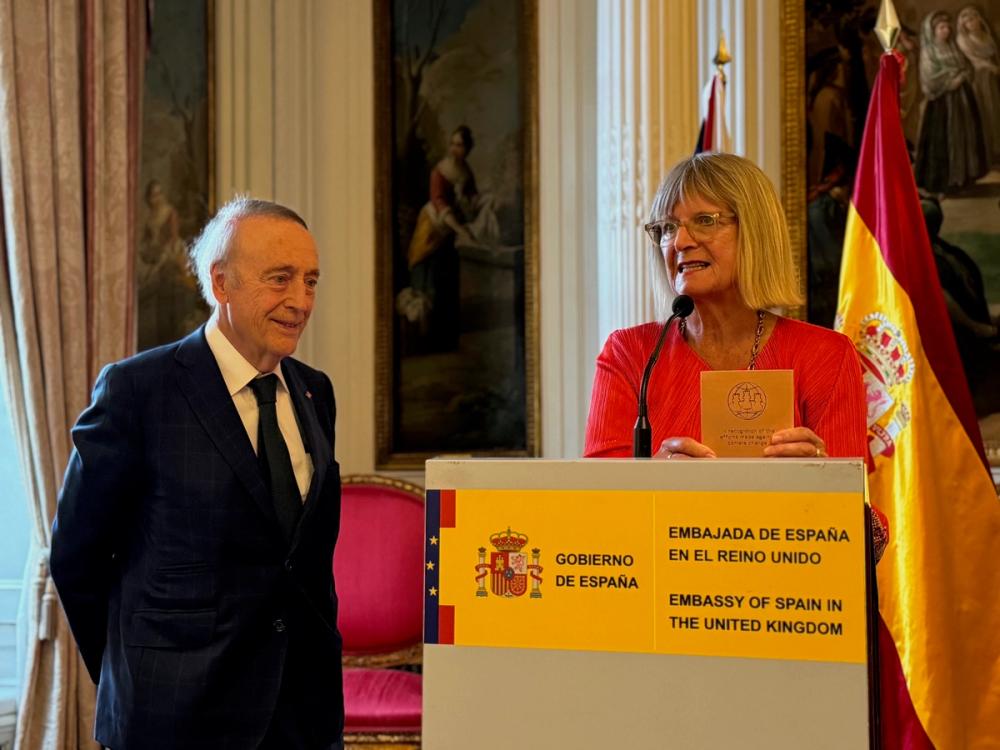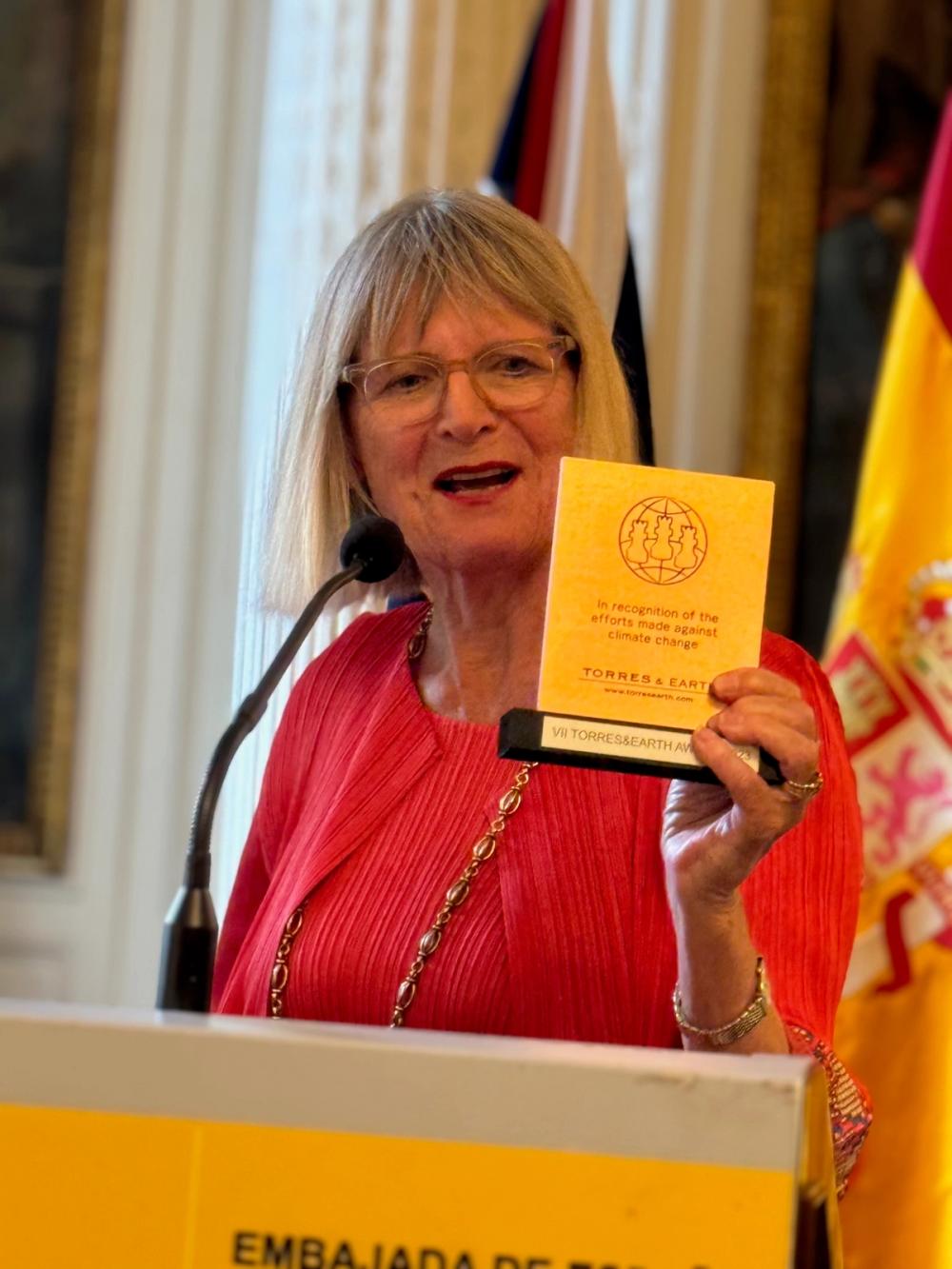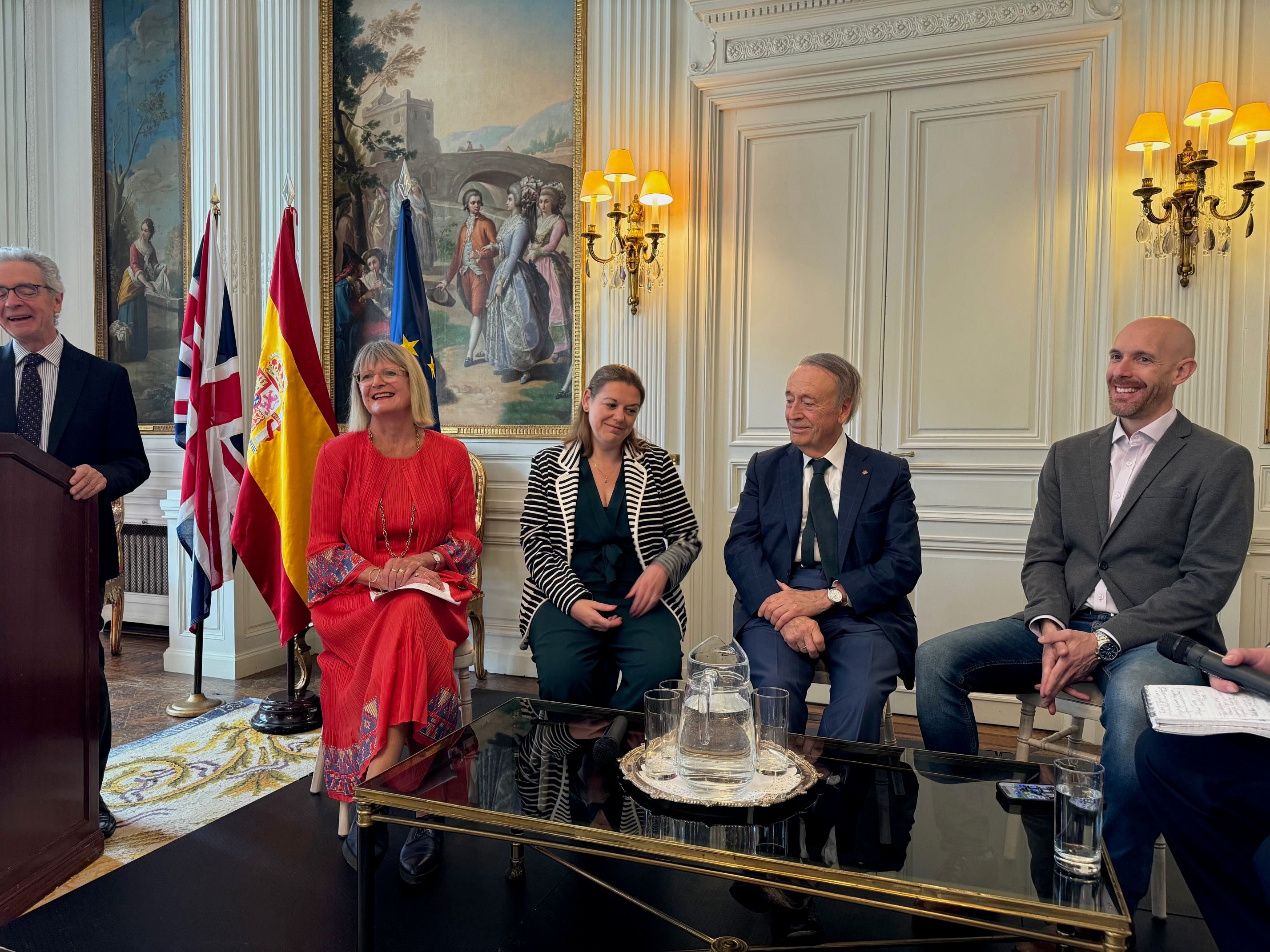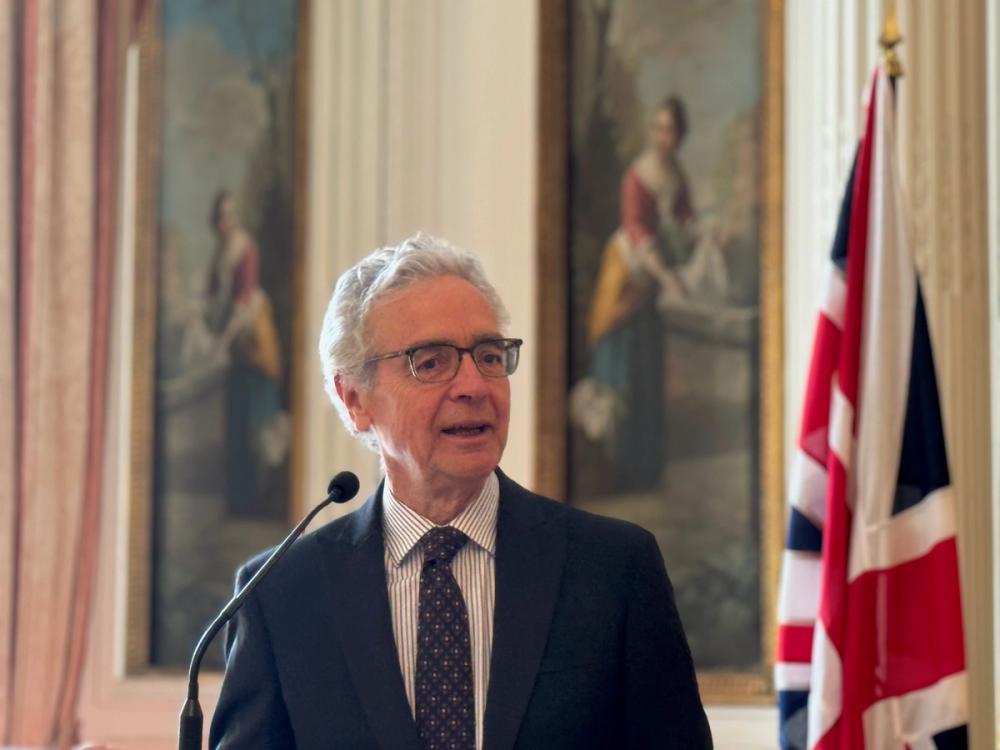
The event was opened by The Ambassador of Spain, H.E. Mr. José Pascual Marco who welcomed the invited trade audience and panel of speakers for the special climate change debate at the Spanish Embassy in London
Sustainability and concern for the environment might now be topics du jour amongst business leaders across all sectors, championed by the chattering classes, but it has taken a long time for industry chiefs and companies to stop talking and actually take positive action to tackle, or at least start to take the measures needed to deal with what many scientists now claim is a crisis point for climate change.
When Miguel Torres first started campaigning in the wine industry for action against climate change over 15 years ago, he was considered something of an outlier for what were then largely unorthodox views. But he has remained steadfast in leading from the front. Not only with the agenda-setting viticultural steps he has taken at Familia Torres, but as a constant voice willing to speak out at industry events and global conferences urging the rest of the wine sector to take climate change seriously.
He can take pride in the fact so many wine businesses now have sustainability and climate change as their number one business priority.
Torres kicked off the debate by pointing out that given its geographic proximity to Africa, Spain was always going to be amongst the first big winemaking countries to feel the heat – literally – of the impact of climate change. Catalonia, and especially Penedès has suffered from severe drought conditions for the last three years.
And after its warmest January on record, Catalonia declared its first-ever drought emergency in February this year, when its reservoirs were less than 16% full. Thankfully, it rained through much of April, though water reserves remain low, he said.
But these are the ongoing challenges now facing Spanish producers, who have had to adapt their viticultural practices to survive, and to ensure they have a long-term future, Torres added.
Moving to higher altitudes

Miguel Torres was able to explain the extensive steps that Familia Torres has taken to tackle climate change including bringing back ancestral grape varieties
With considerable foresight, and awareness of the looming climate crisis, Torres said the business started snapping up higher altitude land with a cooler climate around 12 years ago. “I am very glad we did that,” he said, as “things are happening and happening fast and, of course, we have to adapt. We have made big efforts to mitigate our emissions, but even so, more needs to be done.”
Familia Torres has also been experimenting with reviving some historic indigenous vines which being native to the region are naturally better able to withstand hot, dry conditions, such as Garnacha, which is hardier than the ubiquitous Tempranillo.
“We have to create wines that are resilient to global warming,” confirmed Torres. “We recovered about 60 of the old Catalan vines that had thrived before Phylloxera, after putting small ads in the local Catalan newspapers asking for help. Of those around six or seven were very good.”
Of which some have adapted well to the current climate, including Forcada, Moneu, Gonfaus and Pirene.
How Torres is reducing carbon footprint
Other efforts to slash Torres’ carbon footprint include working closely with suppliers to reduce the weight of its glass bottles, with over 95% now used weighing in at less than 420g; expanding its carbon capture and reuse system, in operation since harvest 2021 to extend the capture of CO2 from fermentation up to two weeks, with the ultimate goal being self-sufficiency in CO2. Torres has also joined the country’s first national glass bottle reuse project.
It moved its total production over to organic farming in 2008, and will have more than 600 hectares of vines under regenerative practices by the end of this year, meaning a large part of its vineyards will be certified by the Regenerative Viticulture Alliance.
“The carbon capture project is very exciting,” continued Torres. “It has enabled us to stop buying CO2 from the chemical industry by using the natural CO2 from the fermentation process.”
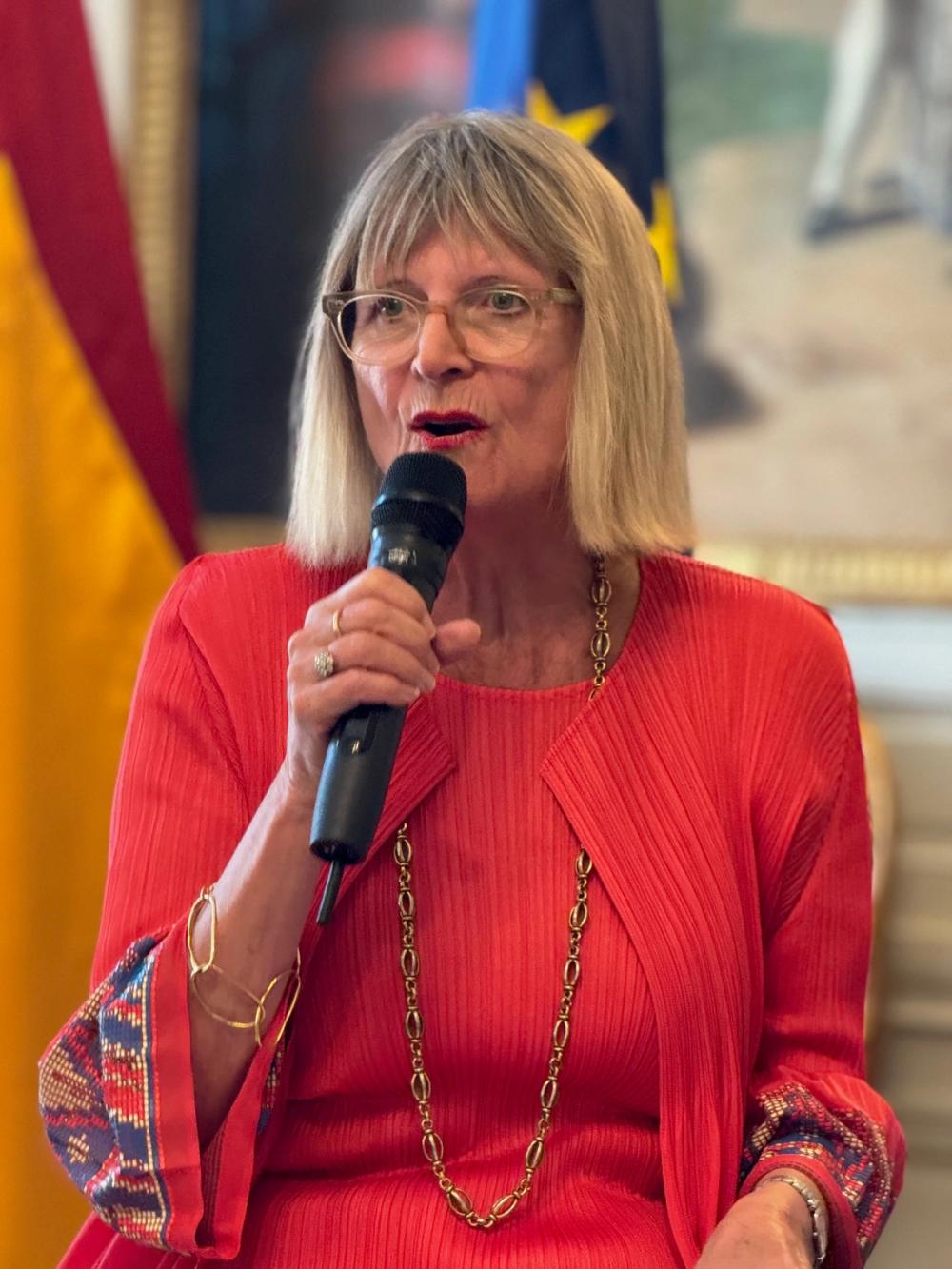
Jancis Robinson MW was able to share her admiration for the climate change steps that Miguel Torres has taken as well as set out her own thoughts on how the wine industry can collectively take actdion on glass bottle weight
Jancis Robinson MW told the invited audience that she strongly applauded the huge advancements made by Torres and his team over the past decades in reducing its carbon footprint, but also, vitally, in raising awareness amongst other wine producers of the importance in doing so.
“I am aware that Miguel Torres was just about the first major wine producer to draw our attention to the climate crisis decades ago, and to take sometimes painful, often expensive, but much needed steps to respond to it,” she said. “I take my hat off to all the hard work put in by the Torres family to seek out historic indigenous varieties, which being native to the region may well be better able to cope with the climate crisis.”
She added: “Most of Spain is dry – some of it too dry – and is surely well placed to pursue farming without agro chemicals. But Spain is not one of the wine producing countries with a particularly high proportion of producers with organic or biodynamic certification – possibly for economic reasons.”
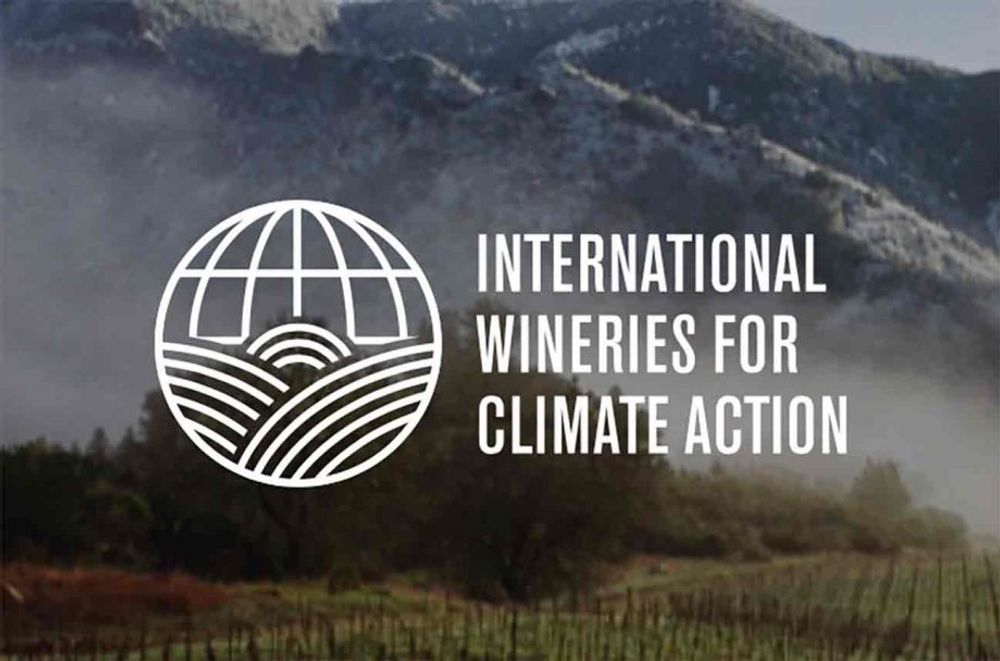
Migues Torres has helped set up the International Wineries for Climate Action that now includes 150 wineries from all over the world
Torres said that one of the initiatives he is most proud of is founding the International Wineries for Climate Action (IWCA). First established in 2019, in tandem with California’s Jackson Family Wines, it was set up as a collaborative group of wineries committed to reducing carbon emissions across the global wine industry. The group now comprises 50 wine producers and businesses that represent 150 wineries from 12 countries, all of whom are committed to following agreed set principles and producers in order to reach net zero by 2050.
It is, though, thanks to Torres leadership and vision that has provided the platform for the IWCA to now flourish.
Tackling glass
While great strides have been taken within the vineyards and wineries to reduce their impact on the environment, the biggest offender within the wine industry, discussed the panel, is in the packaging of wine, principally in glass, and its distribution around the world. While the shipping industry is experimenting with low-carbon alternatives to oil to power its container ships, such as installing enormous sails, these sort of changes within global supply chains inevitably take time to implement, not to mention huge investment.
Bulk wine has done much to reduce the quantity of glass bottles being shipped around the globe, but it remains pretty much within the commercial end of the wine industry for wines destined to end up on supermarket shelves. Producers of premium wines are still resistant to their wines being transported in vast 24,000 litre plastic flexitanks.
Therefore, reducing the weight of glass bottles has been a key pillar of the IWCA’s initiatives, and is also something that Robinson is not only passionate about, but has helped move the dial with her high profile campaigning and writing urging producers to lower their glass bottle weight.
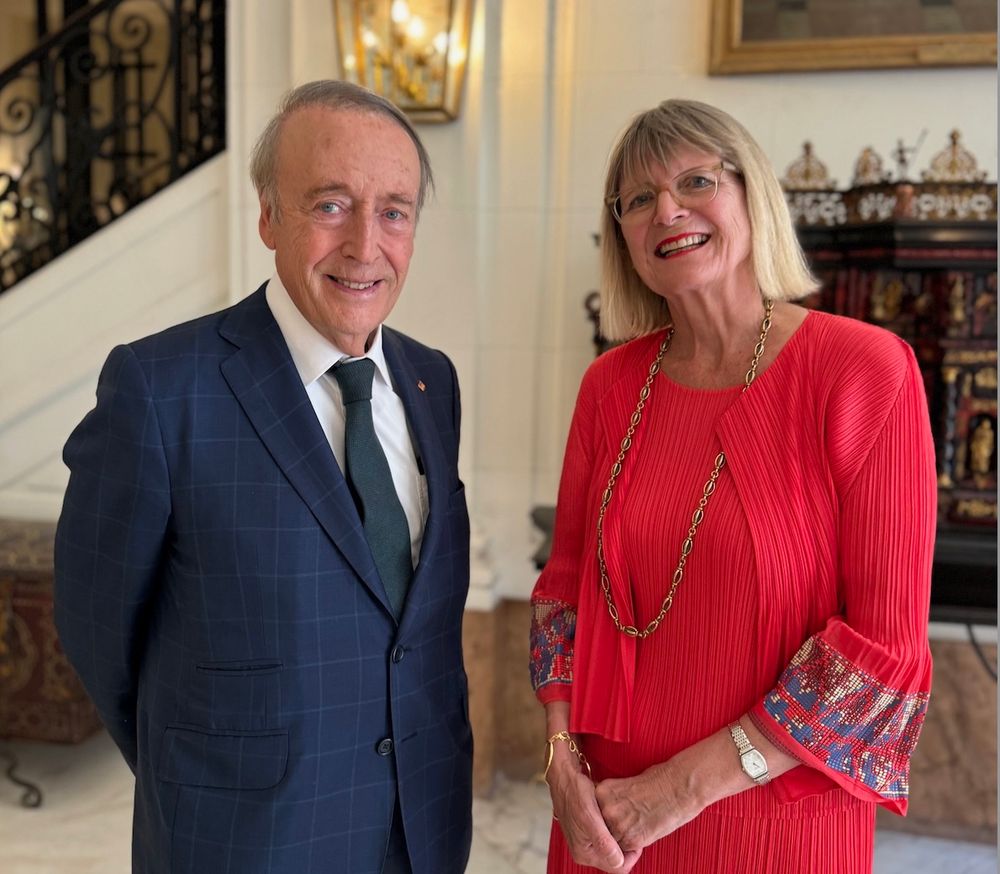
Miguel Torres and Jancis Robinson MW before the debate
It is an issue, she said, she has been pushing as far back as 2006 and argued there really is no place or excuse for “unnecessarily heavy bottles” in the market place. They simply “use up far too many natural resources".
“Finally the message seems to be getting through to producers worldwide, as well as to bottle manufacturers, that they must respond to the fact that wine’s biggest contribution to the world’s carbon footprint is not in the cellar even though fermentation gives off CO2, nor in the vineyard, but in the production and transport of glass bottles,” she told the Spanish Embassy audience.
On her website Robinson publishes, where possible, the weight of all the bottles her and her team taste, “to highlight the goodies and the baddies amongst producers”, and reports “we are definitely seeing a reduction in the average bottle weight.”
She added the quality of lighter weight bottles has also greatly improved in recent years. “I can no longer tell just from looking and handling a bottle how much it weighs,” she said “The design of lighter bottles has improved enormously as has the technology for filling them. There is no longer any excuse for prolonging the myth that bottle weight is an indication of wine quality.”
She conceded that glass is the “ideal neutral material for keeping wine for long ageing – if you buy a first growth Bordeaux and you are going to age it for decades there is nothing better than glass.” However, she questioned what proportion of wine is bought to age, and pointed out that the vast bulk of wine will be drunk fairly shortly after purchase – if not immediately - and therefore does not necessitate being packaged in expensive, heavy glass.
“Why are we ruining the planet by putting everything into glass bottles?” she asked.
Direct action
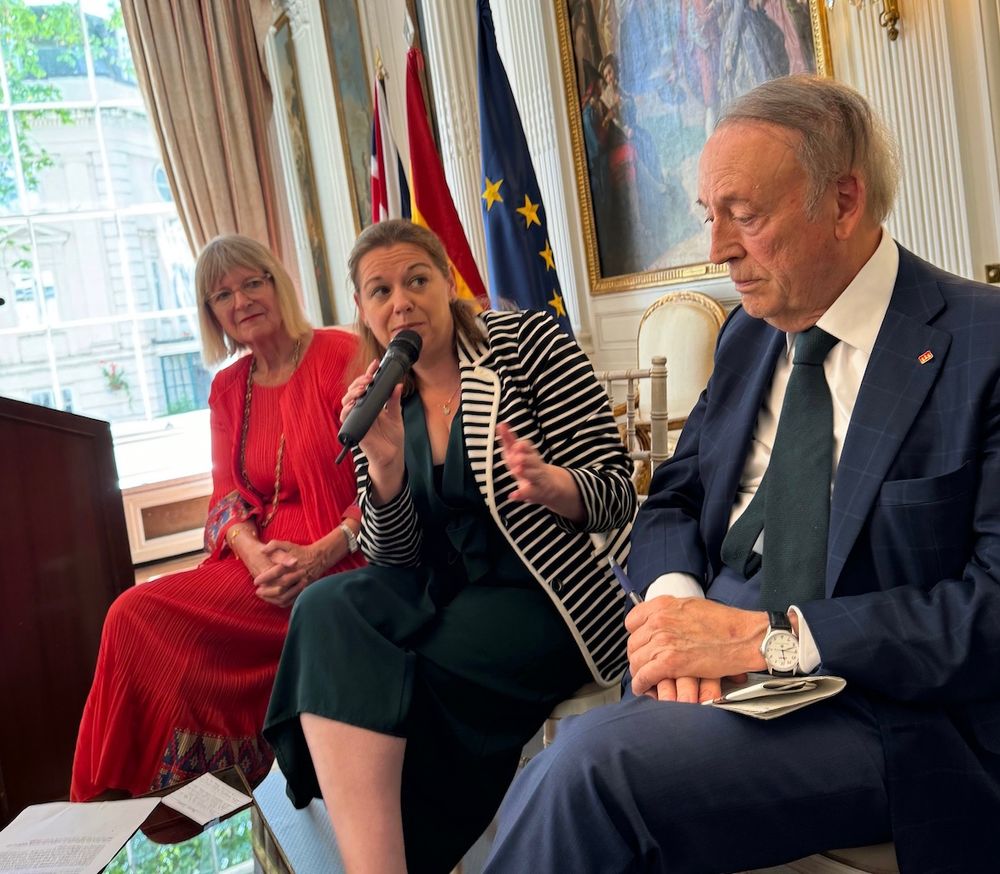
Anne Jones was able to explain the role and impact that regenerative farming can have on tackling climate change
It's not just wine producers who are pulling together on the issue of climate change and sustainability. Some of the UK’s biggest grocery multiple retailers including the likes of Waitrose and Tesco, as well as The Wine Society and Direct Wines, have signed a new international accord, along with the US giant Wholefoods and the Swedish and Finnish alcohol monopolies, pledging to reduce the average bottle weight down to 420g by 2026.
Anne Jones said that the Nordic monopolies participation will have a “huge impact” because if they are capable of changing behaviour then that will “flow through to the rest of Europe”.
As well as working with lighter glass bottles, the wine industry is increasingly turning towards other, alternative light weight packaging solutions, like canned wine.
“I know the world’s resources of aluminium are finite,” said Robinson, “but recycling it is relatively easy, and there already exists a strong tradition of recycling cans.”
Bag in box, too, which dominates in the Scandinavian markets, is another excellent alternative to glass, she claimed. “I’m not suggesting putting your top flight wine in a bag, but it is a very good idea for your less expensive wines, as the Scandis have discovered.”
The Wine Society, for example, has embraced this new packaging alternative, and has instructed its members on how to recycle, with almost all elements of the box – bar the tap – now easily recyclable.
“I don’t think we need to be wedded to glass other than wines at the very top level,” stressed Robinson.
Torres, however, sounded a note of caution: “When it comes to boxes, we are talking about plastic, which I think is very bad for us – it is dangerous for our health and the planet. We already throw so much plastic into the sea.”
Over 40m tonnes of plastic are discarded into the world’s oceans every year, and, he claimed, there are areas in the Pacific three times the size of Texas which are swimming in plastic debris.
He believes a better solution than switching to plastic boxes is to turn back the clock and adopt bottle return and refill schemes.
“I would like to persuade the monopolies in Scandinavia [where 50% of wine is sold in boxes] that they should go back 20 years and reuse bottles the way they did in the old days, and have them refilled.”
He said a reuse trial has been carried out in Spain which proved very successful, with consumers happy to get on board with it.
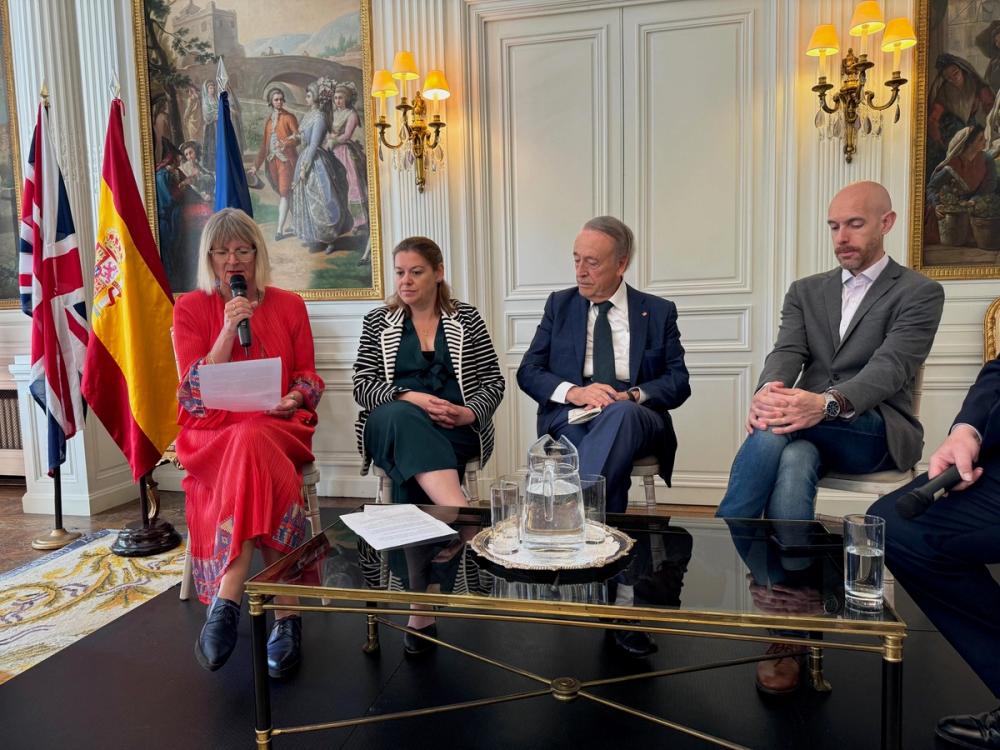
Jancis Robinson MW said she was pleased to see how many producers were now taking action against climate change
Role of the consumer
But what of the consumer in all of this? They too, have an important role to play if the wine industry is to achieve its sustainability goals. According to Anne Jones, we are now seeing something of a “mind shift” in this respect, pointing to research that 64% of consumers are “actively seeking” out sustainable options.
Despite the high proportion of engaged consumers, Jones claimed that across Europe this has yet to manifest itself into sales. “No one is yet seeing that desire translating into direct sales patterns yet, because it’s complicated. But we are trying to join the dots.”
She believes that Spain is uniquely placed to play a leading role in the shift towards a more sustainable wine industry. “It is sitting in the middle of a tightrope between mitigating the impact of climate on the wine industry, and mitigating the impact of the wine industry on climate. And that’s a very simple calculation we need to look at.”
For a winery working towards net zero, the two most important factors, stressed Jones, are glass and soil health and biodiversity.
“As an industry we need to demonstrate how we are mitigating these two things. We have had this fantastic head start from Torres which has created a real movement and that is what consumers need to see from us. They want the retailer to do the work, and want us to come up with the answers – they want to buy more sustainable products but they don’t know how to do that,” explained Jones.
The big challenge now, she said, is how to communicate the sustainability message to consumers. “I think consumers are prepared to put their money where their mouths are, but there are different ideas as to what sustainability means.”
She compared Spain, where understanding of sustainability manifests itself largely in buying local, to California, where consumers may have a “more sophisticated” understanding of carbon.
“It’s all about telling stories,” she continued, “you can’t rely on retailers to do that, we all have a responsibility to tell the story of our industry and how we are working to make that more sustainable.”
However, she points out that ultimately, consumers buy wine to treat themselves and to enjoy, and don’t necessarily want to be “thinking about diesel”.
Torres agreed that educating consumers is key. “They have to change their ideas,” he said. “There is no sense in buying a very expensive wine in a cheap bottle, but we have to get consumers to understand the challenges the planet faces, and we must reduce red meat consumption because of methane emissions, and stop flying round the world in planes. And trains need to become better and more affordable.”
Whether the wine industry chooses to become more sustainable for commercial or economic reasons, for the climate or for our own consciousness, Jones insisted that it is now “imperative” that the industry acts. “And I think that with the head start that Torres has given to this, Spain is really in a unique position to capitalise on it.”
Collaboration is key
Collaboration, she added, is also very important. “We are trying to work in harmony with nature. Yes, there are global principles that can be applied such as avoiding tillage, avoiding synthetic input, using animal integration, but these have be relevant locally.”
Clearly, wine producers do different things in the vineyard depending on whether they are dealing, for example, with drought compared to extreme flooding. “It’s about doing the right thing for your specific location, which makes it very hard to define. It’s about viticulturists understanding their own land and doing the right thing by it. It’s taking the traditional and overlaying that with this amazing new science and technology we have, be that AI, robotics or satellite technology,” she explained.
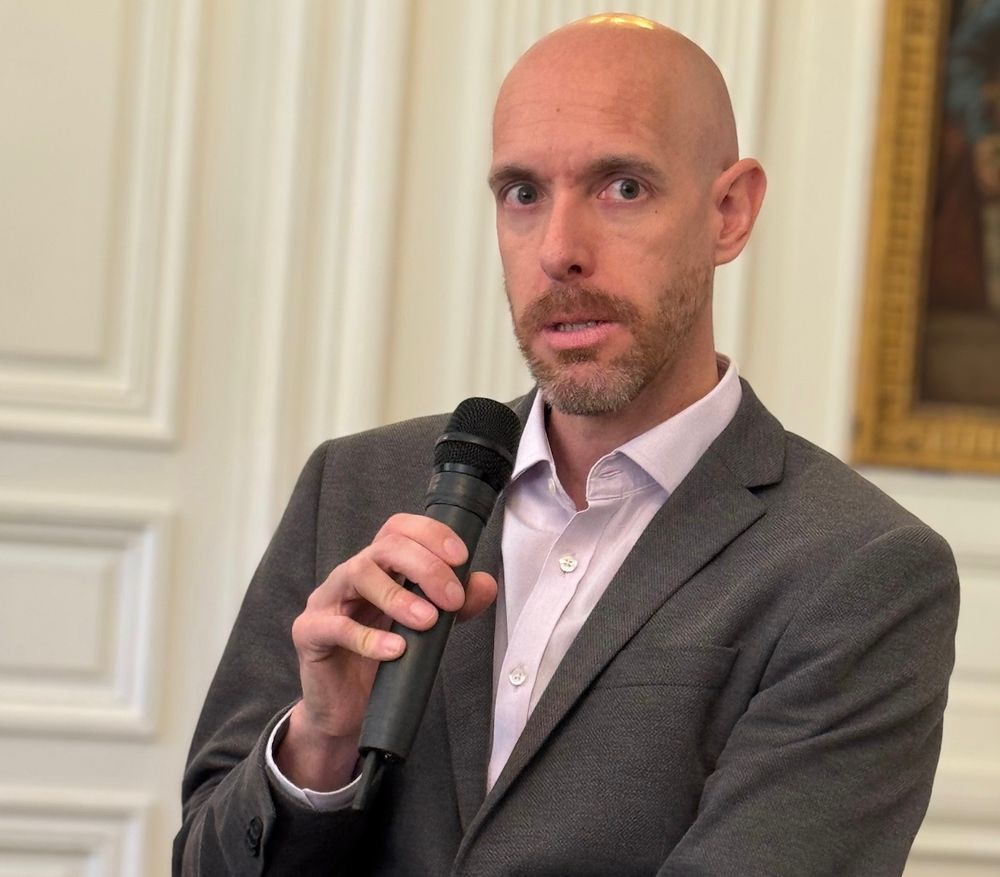
Jose Pacheco of C&D Wines said it was essential the industry worked together in collaboration to tackle climate change
Jose Pacheco agreed that collaboration is vital. “Sustainability is clearly the way forward, and we have one of the biggest players in Spanish wine production leading the movement. To have him supporting a more sustainable way of production is absolutely the best way forward.”
But Pacheco expressed concern at the complexity of the message, and how to best communicate that clearly without muddying the issue. “Clarity is key, but I am concerned because it is extremely complicated as there are so many factors that have to be taken into consideration and evaluated.”
He said that with the best will in the world, there is also a need for businesses to be pragmatic. “We have to be realistic, and unfortunately there are always financial factors at play, as well as social factors surrounding sustainability.”
However, he praised Torres for taking up the mantle and leading the way for Spain and sustainable and regenerative agriculture. “We have come a long way,” he said. “All you need do is drive round the Spanish countryside, and you will see for yourself – you used to see only vines in the vineyards with nothing else growing, but now we see all this biodiversity, with more plants and trees around the vines, which is all very positive.”
What was once a vision of viticulture and winemaking, driven by Miguel Torres and his team, has now become a reality not only in Spain but in major wine producing countries all over the world.
* The event was also an opportunity for Miguel Torres to present a special award "Torres & Earth Award" to Jancis Robinson MW for the steps she has personally taken to address climate change through her website and campaign to reduce glass bottle weight.
